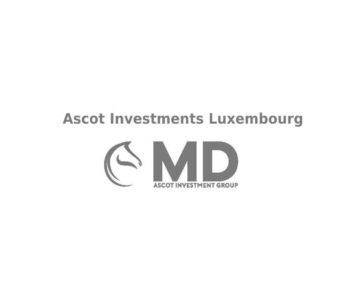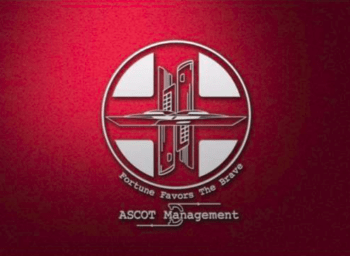
Luxembourg Participation Exemption 2018
Luxembourg Participation Exemption 2018
Luxembourg’s participation exemption regime provides for an exemption from income,
withholding and net wealth tax for qualifying investments held by qualifying entities.
The exemption from income tax is extensive, covering dividends, capital gains and liquidation proceeds.
In addition, no withholding tax applies on dividend distributions if the conditions for the participation exemption are met.
Finally, participation qualifying for the participations exemption are exempt from net wealth tax.
The domestic participation exemption regime has been modified with effect as of 1 January 2016 in order to comply with the amendments of July 2014 and January 2015 made to the EU Parent-Subsidiary Directive to introduce a general anti-abuse rule and an anti-hybrid rule.
The conditions that must be met to qualify for the exemptions are summarized below.
In some cases, tax treaties may provide for more favorable conditions.
Whether the exemptions apply to a particular set of circumstances must be determined on a case-by-case basis.
Enlightened by:
Wissam Mobayyed
Income tax exemption:
Tax exemption for dividends, capital gains and liquidation proceeds received – participation exemption.
Status of the Luxembourg beneficiary
- Fully taxable resident collective entity listed in article 166 LITL paragraph 10; or
- Fully taxable resident corporation not listen in article 166 LITL paragraph 10; or
- Luxembourg permanent establishment of either:
– a collective entity that is covered by the Parent-Subsidiary Directive; or
– a corporation resident in a country with which Luxembourg has signed a tax treaty; or
– a corporation or a co-operative company that is resident in an EEA country other than a member state of the European Union7.
Size of participation
The minimum participation that qualifies for the exemption is:
- A 10% participation; or
- An acquisition price of at least €1,200,00 to qualify for the dividend and liquidation proceeds exemption; or
- An acquisition price of at least €6,000,000 to qualify for the capital gains exemption.
Status of the subsidiary
- Collective entity listed and covered by the Parent-Subsidiary Directive; or
- Fully taxable resident corporation not listed in article 166 LITL paragraph 10; or
- Non-resident corporation fully subject to an income tax comparable to the Luxembourg corporate income tax. A minimum income tax rate of 9% generally satisfies this requirement as long as the taxable basis is determined according to rules and criteria similar to those applicable in Luxembourg.
The exemption also applies to participation held in a qualifying company through tax transparent entities.
However, decreases in the acquisition cost that result from dividend distributions are not tax deductible to the extent the dividends are tax exempt.
If a parent company writes off part or all of a loan to its subsidiary, the value adjustment is treated in the same way as any decrease in the acquisition cost of the participation, i.e. this write-off is taken into account when calculating the exempt capital gain portion.
Deduction of expenses
Expenses directly related to a participation that qualifies for the exemption (e.g. interest expenses)
are only deductible to the extent that they exceed exempt income arising from the relevant participation
in a given year. Decreases in the acquisition cost of a participation that qualifies for the exemption
are deductible. The exempt amount of a capital gain realized on a qualifying participation is, however,
reduced by the amount of any expenses related to the participation, including decreases in the
acquisition cost, that have previously reduced the company’s Luxembourg taxable income.
Profit distributions falling within the scope of the Parent-Subsidiary Directive are not tax exempt in Luxembourg where the subsidiary is a collective entity listed and covered by the Parent-Subsidiary Directive (see first bullet point above under “Status of the subsidiary”), if
(1) such distributions are deductible by the payer located in another EU Member State (anti-hybrid
rule) or if
(2) the transaction is characterized as abusive within the meaning of the Parent-Subsidiary Directive
(general anti-abuse rule). In this respect, a transaction may be considered as abusive if it is an
arrangement, or a series of arrangements, that is not “genuine“ (i.e., that has not been put in place
for valid commercial reasons reflecting economic reality) and has been put in place for the main purpose or one of the main purposes of obtaining a tax advantage that is not in line with the objective
of Parent-Subsidiary Directive.
General anti-abuse rule and anti-hybrid rule
A general anti-abuse rule and an anti-hybrid rule were introduced into Luxembourg domestic tax
law in order to comply with the amendments of July 2014 and January 2015 made to the Parent Subsidiary Directive.
Dividends received – not qualifying for participation exemption.
Dividends received by a Luxembourg entity that do not qualify for the participation exemption
are taxed at the full rate of 26.01%, which is the aggregate of corporate income tax, municipal
business tax and the employment fund levy, for companies established in Luxembourg City.
50% of these dividends can be exempt from taxation,
i.e. they will be subject to a 13% effective tax rate, if
they are paid by:
- A fully taxable resident corporation; or
- A corporation resident in a country with which Luxembourg has signed a tax treaty and that is
fully subject to an income tax comparable to the Luxembourg corporate income tax; or - A company that is covered by the Parent-Subsidiary Directive.
Withholding tax exemption:
Application of participation exemption
Status of the recipient
- Collective entity listed and covered by the
Parent-Subsidiary Directive; or - Fully taxable resident corporation not listed in
article 166 LITL paragraph 10; or - Permanent establishment of one of the above
qualifying entities; or - Collective entity resident in a treaty country and
fully subject to an income tax comparable to the
Luxembourg corporate income tax as well as a
Luxembourg permanent establishment of such
a collective entity; or - Corporation that is resident in and subject to
corporate tax in Switzerland without benefiting
from an exemption; or - Corporation or co-operative company resident in
a member state of the EEA other than an EU
Member State and fully subject to an income tax
comparable to the Luxembourg corporate income
tax; or - Permanent establishment of a corporation or of a
co-operative company resident in an EEA Member
State other than an EU Member State.
Status of the Luxembourg subsidiary
- Fully taxable resident collective entity listed in article 166 LITL paragraph 10; or
- Fully taxable resident corporation not listed in article 166 LITL paragraph 10.
The exemption also applies to a participation in a qualifying company held through tax transparent
entities.
Size of the participation
The minimum participation that qualifies for the dividend withholding tax exemption is:
- A 10% participation; or
- An acquisition price of a minimum of €1,200,000.
Minimum retention period
The participation must have been held (or a commitment to hold must have been made) for at least
12 months on the date that the dividend is allocated or realized for tax purposes. The test applies to the
participation in general rather than on a share-by share basis.
General anti-abuse rule
A general anti-abuse rule was introduced into Luxembourg domestic tax law in order to comply
with the amendment of January 201514 made to the Parent-Subsidiary Directive.
Dividends falling within the scope of the Parent Subsidiary Directive, which are paid by a Luxembourg
fully taxable company to a collective entity listed and covered by the Parent-Subsidiary Directive (see first
bullet point above under “Status of the recipient”), or to an EU permanent establishment of a collective entity listed and covered by the Parent-Subsidiary Directive, will not benefit from a withholding tax exemption if the transaction is characterized as an abuse of law within the meaning of the Parent Subsidiary Directive.
In this respect, a transaction may be considered as abusive if it is an arrangement, or a series of
arrangements, that is not “genuine“ (i.e., that has not been put in place for valid commercial reasons
reflecting economic reality) and has been put in place for the main purpose or one of the main purposes
of obtaining a tax advantage that is not in line with the objective of the Parent-Subsidiary Directive.
Non-application of participation exemption
Where the conditions of the Luxembourg participation exemption are not met, a 15% withholding
tax is levied on dividends distributed by a Luxembourg resident and fully taxable corporation.
This rate may be reduced to 0% under applicable double tax treaties.
In addition, Luxembourg law provides for several entities which are subject to a specific tax regime.
The following entities are, in this context, not subject to withholding tax on dividend distributions:
undertakings for collective investment (UCIs) governed by Luxembourg law including SICAV/Fs
and FCPs operated as retail funds or specialized investment funds (fonds d’investissements
spécialisés – SIFs), or reserved alternative investment funds (fonds d’investissement alternatif réservés –
RAIFs), undertakings for collective venture capital investments (sociétés d’investissement en capital à
risque – SICARs), and family asset holding companies (sociétés de gestion de patrimoine familial – SPFs).
Also, no withholding tax is levied on dividend distributions from a securitization company, as the
shareholders in a securitization company are treated like bondholders.
No withholding tax on liquidation proceeds
No withholding tax is levied on the remittance of liquidation proceeds, regardless of the tax status of the
liquidated company or the recipient.
Net wealth tax exemption:
Status of parent entity, of subsidiary and size of participation
The conditions to be met for the exemption of qualifying participations from net wealth tax are
the same as for the exemption from income tax of dividends received by Luxembourg resident
parent companies.
Minimum retention period
The net wealth tax exemption is not subject to any condition pertaining to any retention period.
Debt financing
Debts relating to the acquisition of exempt participations are not deductible from the net wealth tax basis.
Capital gains taxation for non-residents:
If a non-resident shareholder is tax resident in a country that has a double tax treaty with Luxembourg,
the treaty usually allocates the taxation right to the country of residence of the shareholder.
If a non-resident shareholder is tax resident in a country that has no such double tax treaty with
Luxembourg, capital gains on the sale of shares in a Luxembourg company are taxable in Luxembourg if:
- The non-resident shareholder has held a stake of more than 10% of the shares in the Luxembourg
company; and - has disposed of such shares within a period of
6 months following the acquisition.
A taxable gain is subject to 19.26% corporate income
tax if realized by a non-resident corporate shareholder.
For more information please contact us:
Home Office: +352-27765002
(Between 07:00 A.M and 9:00 A.M)
Tel: ++352-691-500009
Email: info@ascot-md.lu




